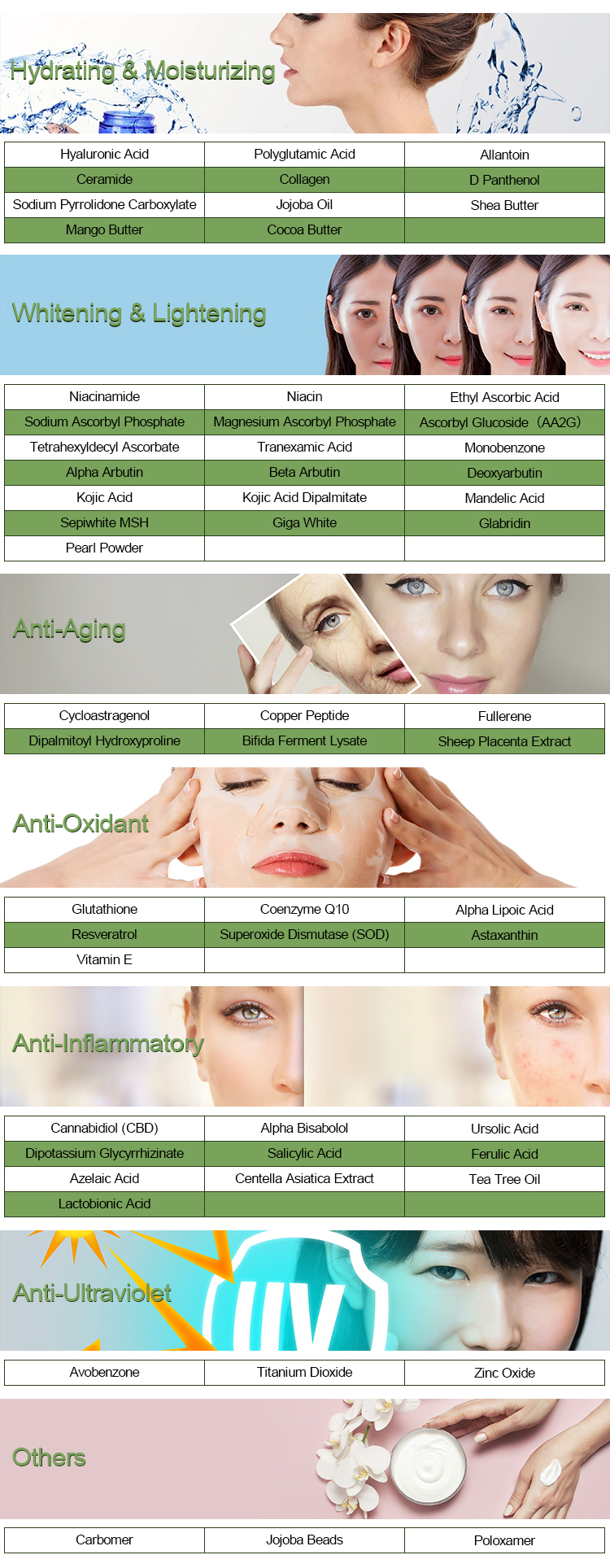Nicotinamide, also known as niacinamide or vitamin B3, is a water-soluble B vitamin that plays a crucial role in various physiological processes in the human body. It is commonly found in food sources and is also available as a dietary supplement. Here are some pros and cons of nicotinamide:

Pros of Nicotinamide:
- Skin Health: Nicotinamide is well-known for its benefits to skin health. It can help improve the texture and appearance of the skin, reduce fine lines and wrinkles, and address issues like acne and hyperpigmentation. It is a common ingredient in skincare products.
- UV Protection: Nicotinamide has been shown to provide some protection against UV radiation, which can help reduce the risk of sunburn and skin damage caused by UV exposure.
- Anti-Inflammatory: Nicotinamide has anti-inflammatory properties, which can be beneficial for various skin conditions, including rosacea and eczema. It may also help reduce redness and irritation.
- Improved Joint Mobility: Some research suggests that nicotinamide may help improve joint mobility and reduce symptoms of osteoarthritis.
- Neurological Health: There is ongoing research into nicotinamide’s potential benefits for neurological health, including its role in protecting against neurodegenerative diseases like Alzheimer’s and Parkinson’s.
- Lowering Cholesterol: Nicotinamide has been shown to have a modest effect on lowering LDL (“bad”) cholesterol levels, which can be beneficial for heart health.
Cons of Nicotinamide:
- Flushing: High doses of nicotinamide or niacin (a related form of vitamin B3) can cause flushing, a sensation of warmth and redness of the skin. This can be uncomfortable for some people.
- Liver Health: Excessive intake of nicotinamide supplements can lead to liver toxicity, although this is rare. It’s important to follow recommended dosage guidelines.
- Gastrointestinal Issues: Some individuals may experience stomach upset, nausea, or diarrhea when taking high doses of nicotinamide.
- Interactions with Medications: Nicotinamide supplements may interact with certain medications, so it’s important to consult with a healthcare provider before taking them, especially if you are on other medications.
- Limited Evidence for Some Claims: While nicotinamide has several potential health benefits, the scientific evidence supporting some of these claims, such as its role in neuroprotection, is still evolving, and more research is needed.
- Cost: High-quality nicotinamide supplements can be relatively expensive, especially if used for long-term skin health benefits.

In summary, nicotinamide offers various potential health benefits, especially for skin health and certain medical conditions. However, like any supplement or medication, it should be used with caution, and individuals should consult with a healthcare professional before starting a new regimen, especially at higher doses. The pros and cons may vary depending on the individual’s health status and specific goals.
